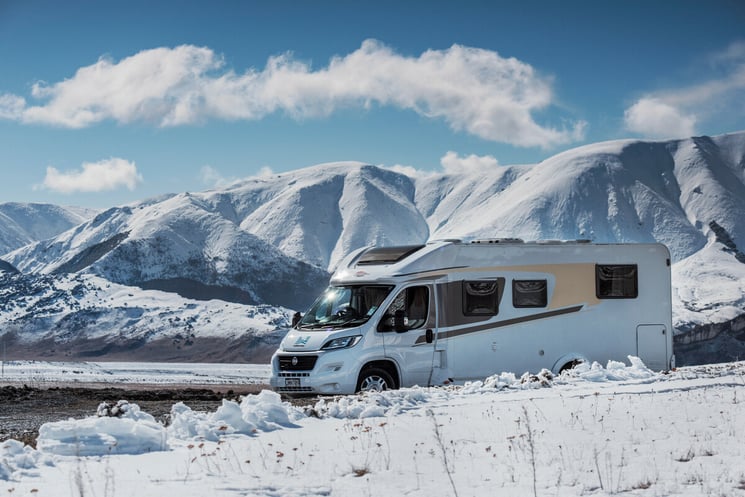
Winter travel is wondrous, magical, memorable and warm. Yes, warm! But how do you find your ideal motorhome which will keep you comfortable when the snow is falling and it’s minus two degrees out? Choose a fully winterised motorhome that’s designed to keep you toasty warm.
Discover why motorhomes are generally warmer than campervans, what a fully winterised motorhome is, and how to stay snug on the road in winter.
|
Table of Contents |
Why a fully winterised motorhome is best for your winter travels
RV, camper, motorhome and campervan. They’re bandied about online as if they’re essentially the same vehicle. That couldn’t be further from the truth.
Staying comfy on a winter road trip takes a lot more than turning on a heater. A fully winterised motorhome is designed to keep you warm and cosy in the coldest winter conditions.
To keep the cold temperatures at bay when travelling in New Zealand's colder areas, you need an effective heating system, full insulation and double glazed windows. The combination of these three elements gives you superior comfort on the most wintry days.

Central heating systems
When travelling NZ in winter, you'll want to be cosy and, most importantly, warm. To achieve this, you’ll want a vehicle with a central heating system that’s able to evenly disperse heated air throughout your living area.
Campervans usually don’t come with central heating, whereas some motorhomes do. Central heating systems, also known as thermostatically controlled blown air heating systems, are standard in high end European motorhomes.
How a central heating system works
A central heating system involves a small gas or diesel powered heater unit that’s fixed under a seat or in a cupboard. Gas is supplied by LPG bottles stored in an external locker. If the system uses diesel, this will be drawn from the motorhome's diesel tank. A ducting system carries the warm air to your motorhome’s vents to quickly heat your internal area.
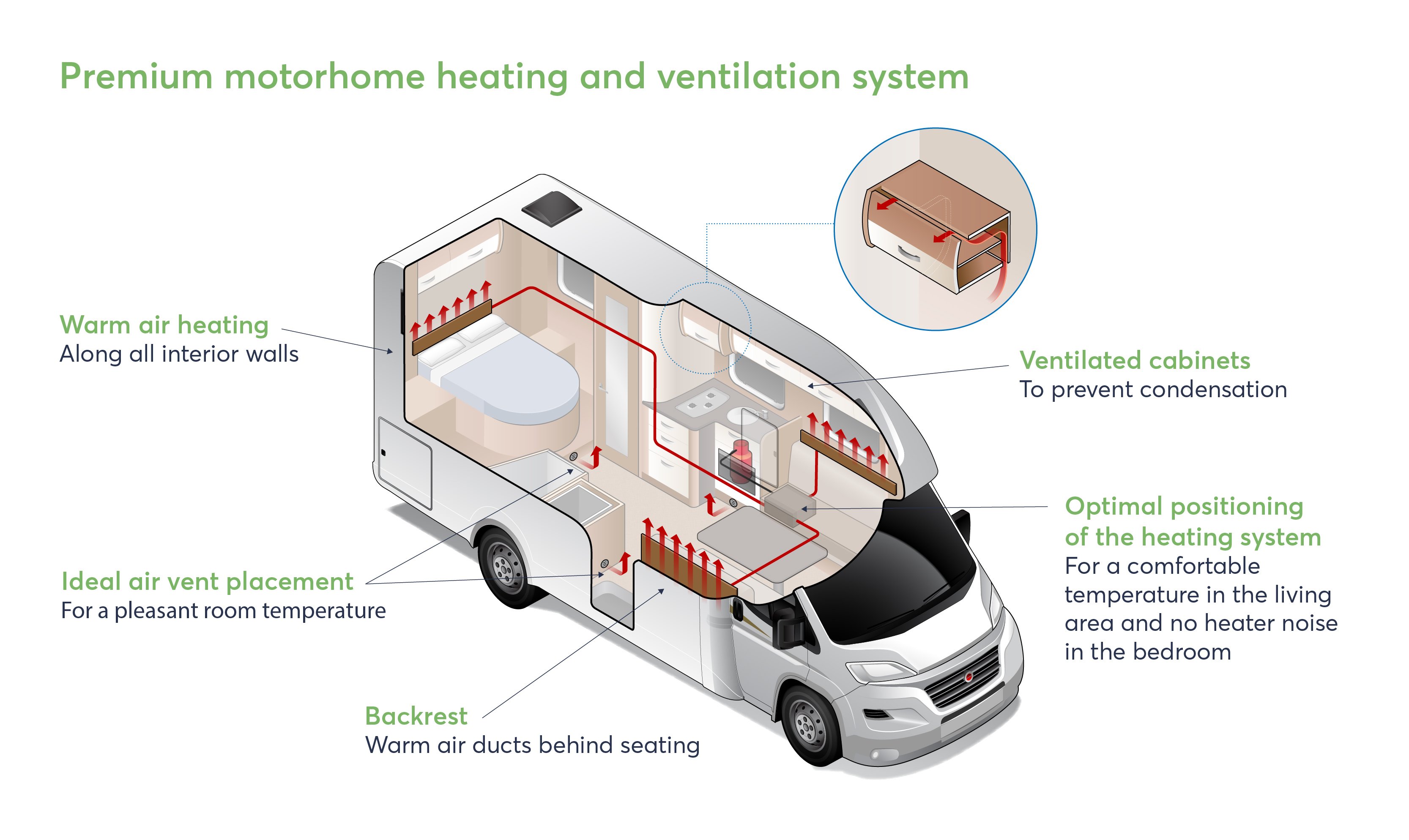
If you have a high end motorhome, like those from Wilderness, it may also have a thermostat. You’ll be able to dial in a comfortable temperature and let the unit do the work. The thermostat will automatically switch on when the temperature drops below your desired setting.
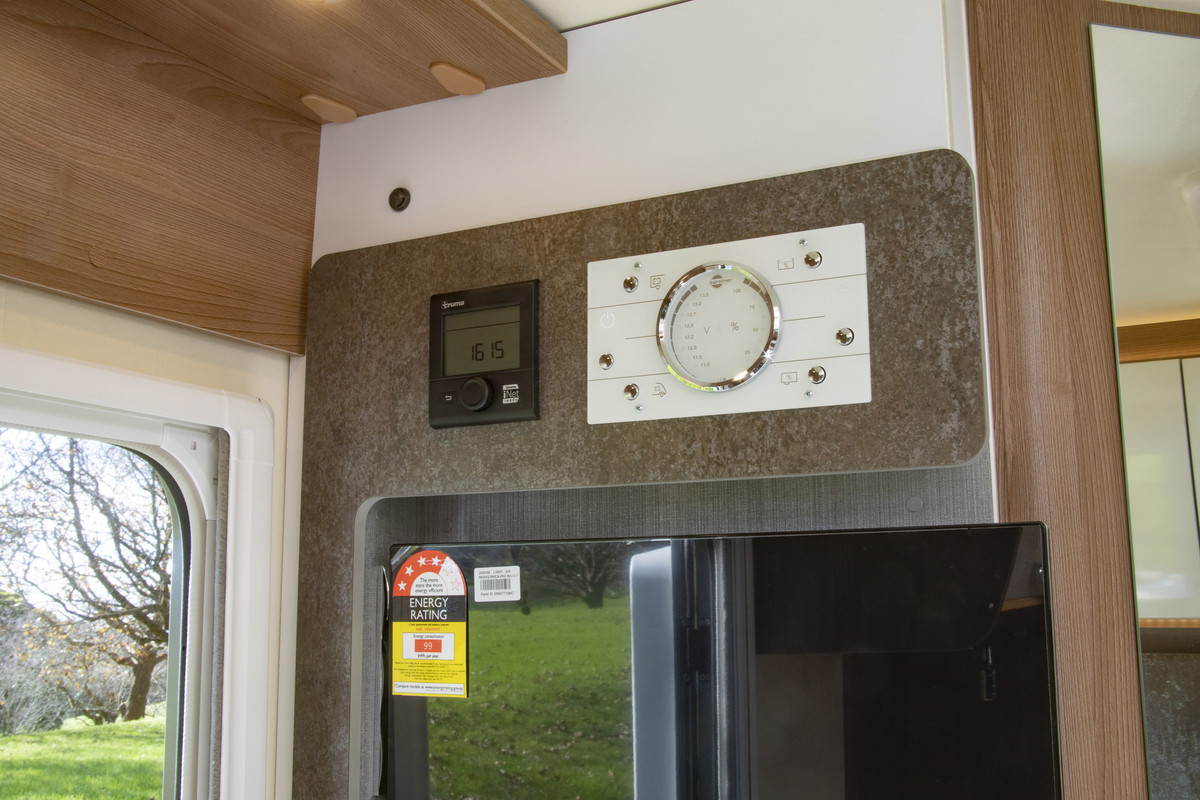
Heating your water
An efficient central heating system will also heat your hot water. You’ll need to turn the system on for about 40 minutes before you can enjoy that relaxing shower or hot cuppa to give it time to heat your water from cold.
Optimise your fuel
Use your fuel sources efficiently by running your heating system on mains power when you're hooked up at a holiday park and LPG while freedom camping.
Insulation
No matter how good your heating system is, you won't feel toasty unless your RV is fully insulated as the heat you produce will quickly escape through the walls and floor. While campervans and motorhomes built to a rental specification will have minimal insulation and can be like ice boxes in winter, most modern motorhomes, come with a degree of insulation. Top end motorhomes, especially those built in Europe, will have insulation in the walls, roof and floor. Well insulated motorhomes:
- Heat up quicker
- Retain heat better
- Can be cheaper to heat.
The type of window coverings in motorhomes can also have a large bearing on warmth. Curtains tend to allow heat to escape but cassette blinds, which fit to the frame of each window, are super effective at preventing residual heat loss.
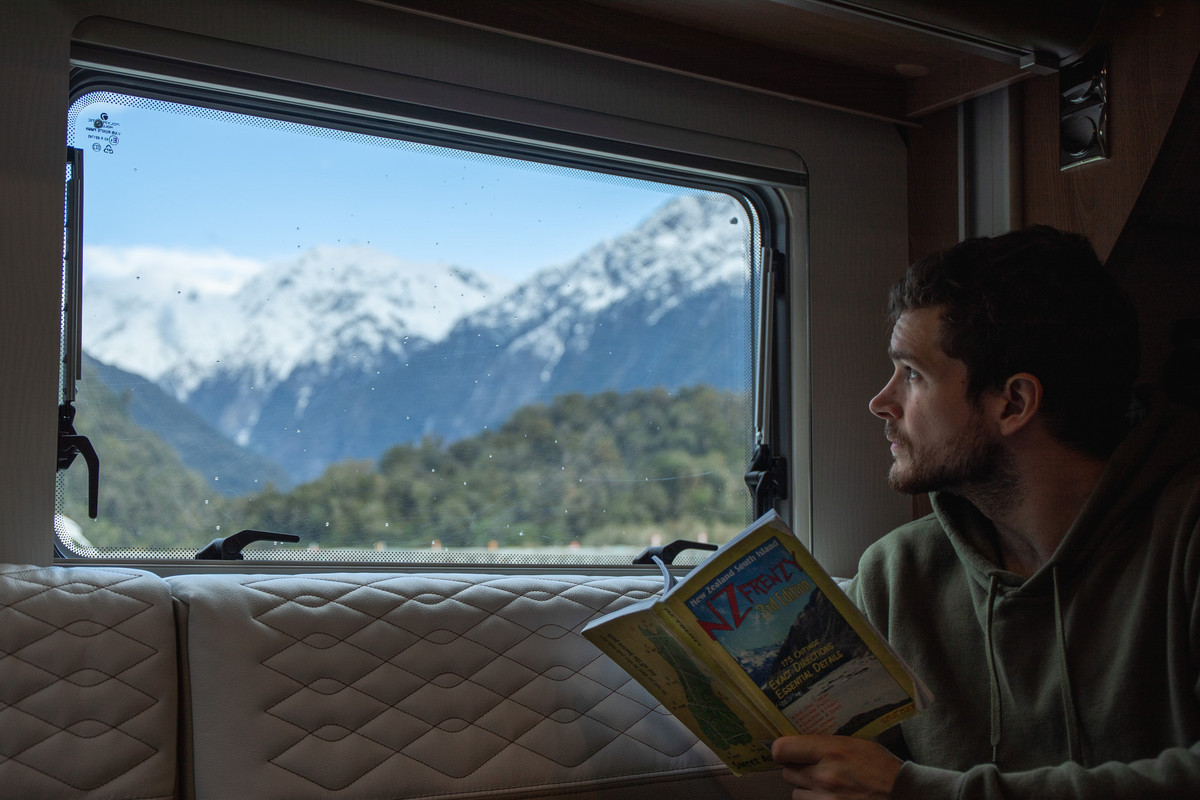
Double glazing
About forty percent of heating can be lost through poorly fitted single glazed windows.
Double glazing employs thermal resistance which retains heat and helps keep cold out. It’s commonly used in modern motorhomes to reduce moisture build up and heat loss inside your vehicle.
Tanks and pipes
It goes without saying that pipes in below zero temperatures can freeze up. A winterised motorhome will contain high grade insulation on all its pipes — keeping Jack Frost away from your precious running water.
Portable electric heaters
The only source of warmth in most campervan (and some motorhome) rentals is a small unregulated heater. But exploring New Zealand in winter with just a portable electric heater for warmth doesn’t sound like a lot of fun.
Any heat generated will dissipate rapidly if your vehicle has poor insulation. Freedom camping may be off your itinerary as a portable heater requires you to be hooked up to mains power at a holiday park.
Find out more about motorhome power.
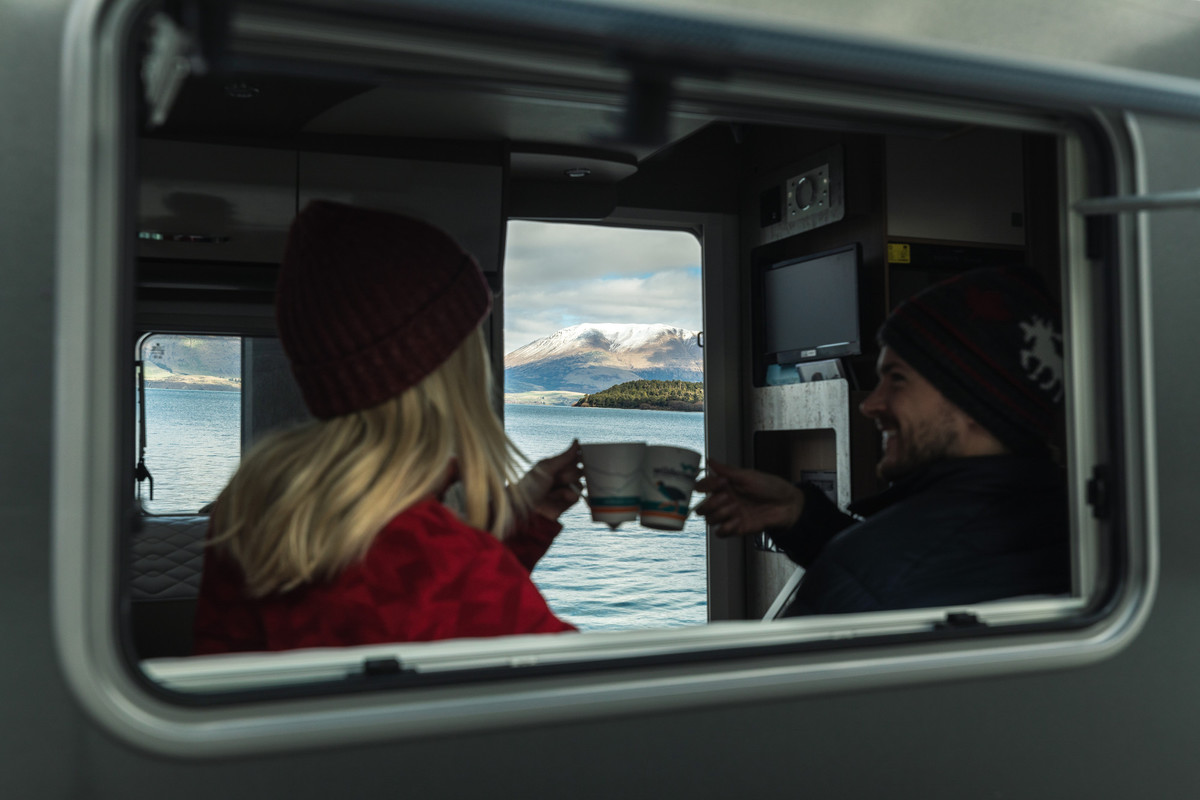
Parking up at powered campsites or roaming free
The beauty of choosing a campervan or motorhome that heats with either gas or diesel, is that you don’t need to connect to a mains power supply. You’ll be able to wave goodbye to civilisation and drive off into the distance.
Hooking up to electric
Most NZ recreational vehicles are designed to plug into mains power at local campgrounds — to top up their batteries. If your motorhome heating runs on gas or diesel, you’ll be able to utilise the electricity supply when you’re back on the grid.
Some Kiwi motorhomes come with built-in electric heating. If yours does, it’ll look like a standard electric heater and be easy to operate.
Electricity is supplied throughout New Zealand at around 240 volts. Simply:
- Plug your campervan into the mains power at a camping ground
- Turn the heater on
- Adjust the temperature
- Enjoy a warm living space in no time.
For some inspiration, take a gander at our ten reasons for travelling NZ by motorhome in winter. If you're looking for places to plug in during winter, check out our list of New Zealand’s most scenic camping locations.
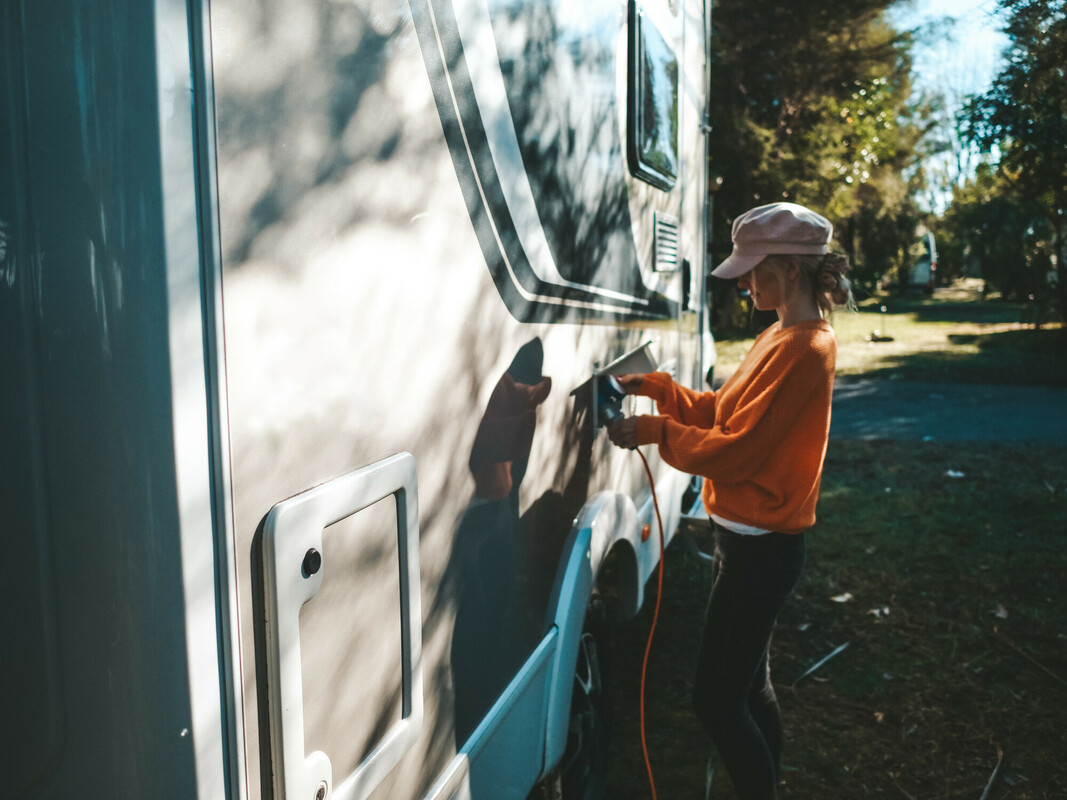
Room to wander when travelling in winter
Around ninety percent of New Zealand motorhome hires occur over the spring, summer and autumn seasons. Come winter, you’ll find few visitors on the roads and the best spots will be relatively deserted.
With a fully winterised motorhome, such as those supplied by Wilderness, you’ll enjoy:
- Central heating
- Full insulation
- Double glazed windows
- Cassette blinds to keep the cold out.
Those four key elements will ensure you’re feeling comfy while camping free around the country.
Check out what’s available for your winter adventure.
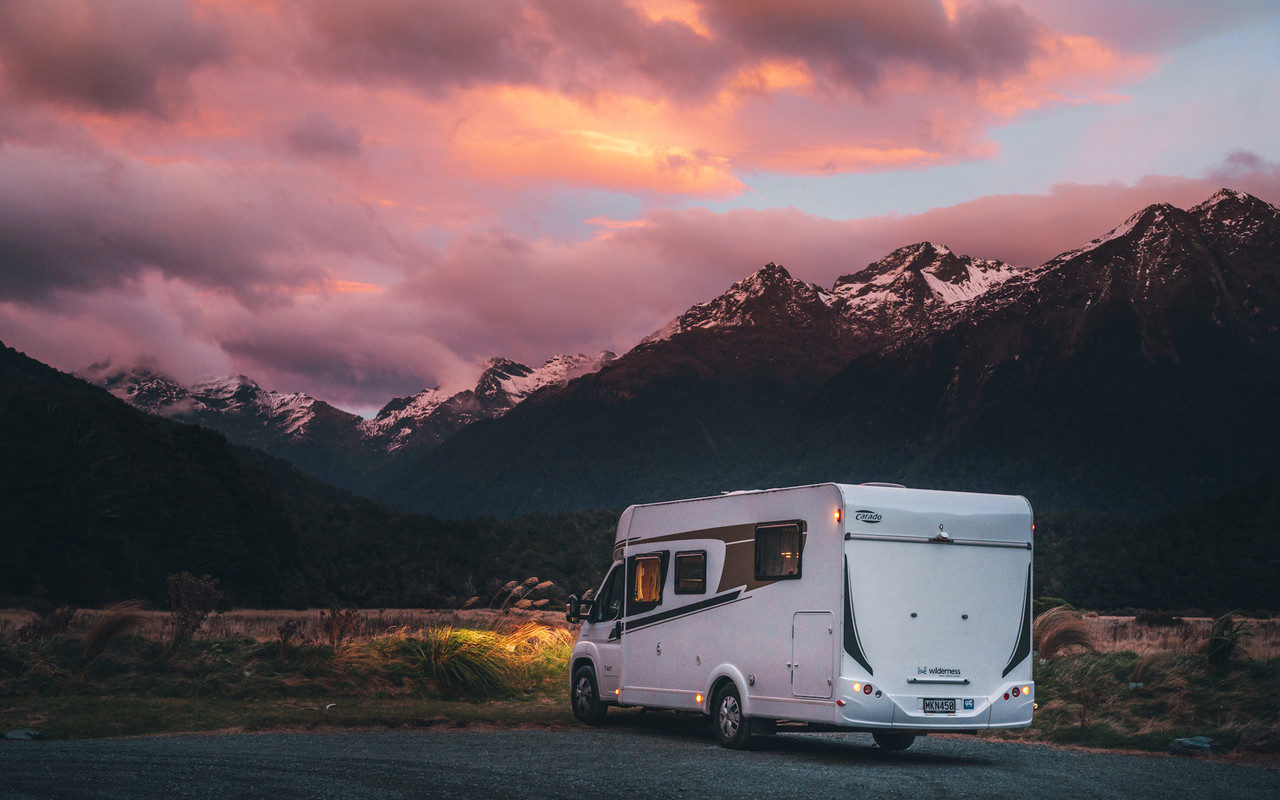
Tips for staying snug on the road during New Zealand’s winter
Winter can still bite even with a reliable heating system in your motorhome. Having a few tricks up your sleeve to create additional warmth can make all the difference.
Draw your curtains or blinds right after sundown
It’s no secret that heat is lost through glass. Single glazed windows will lose more heat than double glazed. Cassette blinds are also more effective at reducing heat loss.
Whatever window coverings your motorhome has, close them as soon as the sun goes down and the temperature starts to drop.
Bring extra socks or slippers
It’s not a given that your motorhome will have underfloor insulation. For this reason, it’s a wise idea to pack an extra pair of socks or slippers. The cabin might be warm as, but the floor may not.
Learn how to operate the central heating system
Motorhome central heating systems are definitely the superior option for winter travel, but they do take a little more to learn than a standard fan heater. You'll have control of the energy source, the thermostat, and both the internal heating and hot water heating options. Make sure you get a thorough tutorial on how to operate the system when you collect the motorhome and know where the user manual is, if required.
Check the gas bottles are full
There's nothing worse than arriving at your freedom camping spot on your first night, only to find you don't have any LPG. Make sure you know where the LPG bottles are stored and do a quick check to ensure they are full.
Use the drying room
Drying rooms are ideal for removing moisture from towels and drying your wet rainwear. Your motorhome has a drying room if there’s both:
- A ducted central heating system with a bathroom vent, and
- Clothes rails in your bathroom.
Simply hang your towels or damp clothes on the rails, then crank up the heat. For more intense heat, direct it all the heat into your bathroom by closing the other motorhome vents. Your gear will dry faster as a result.
Always ventilate
As soon as it gets cool outside, it’s tempting to close all your windows and vents — and to crank up the heater. But if you have an unventilated motorhome, condensation will start to build up, even without your heater on.
It’s important to have one or two roof vents or a couple of windows slightly open at all times. Doing so keeps the air circulating to avoid condensation and stuffiness.
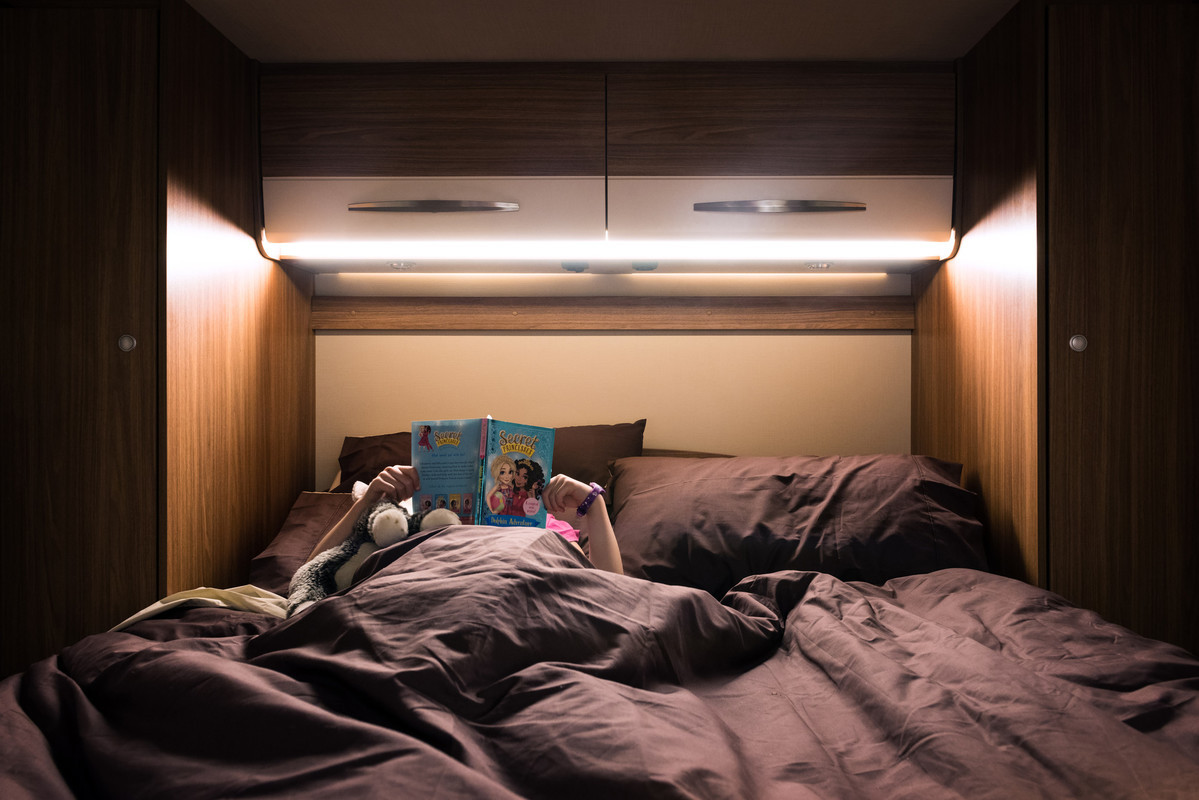
Check there are extra duvets and blankets
Extra chilly nights may need an added layer of insulation over your bedding. Be sure to check your motorhomes has additional blankets and duvets, just in case you need an extra layer.
Avoid unwelcome heater noise
An unwanted side effect of heating a motorhome can sometimes be the noise from the heater - most common in portable fan heaters. Hire a motorhome with a dependable central heating system and you'll not only stay warmer, you also won’t hear anything.
Lock in on-road support
Whichever motorhome you choose to travel in, make sure the rental operator has reliable on-road support included in their services. As incredible as insulation and central heating are for comfy winter camping, having a backup to call upon is a must.
Choosing to hire a winterised motorhome will be one of the best decisions you make when planning a New Zealand winter road trip adventure. The benefits of a central heating system are unparalleled, but you’ll also want full insulation, double glazed windows and cassette blinds to retain heat
Look through your options and go with what’s best for you and your travel companions.
|
Need help finding your perfect motorhome? Take a couple of minutes to go through our handy motorhome selector. |




